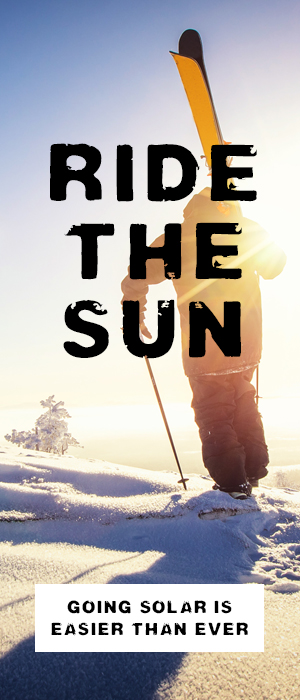Kevin English has a complicated job ahead of him.
English, 37, became part owner of High Cascade Snowboard Camp at the age of 27 after working his way up from counselor to head coach to director. Now he is charged with leading a touchy collaboration between High Cascade and Windells, two Mount Hood summer shred institutions that have been battling it out in the action sports camp business for a long time.
“We have been spirited competitors for the past 25 years, and that competition has made both our camps better,” English said during a recent conversation at a funky little cafe in Portland. “Now there’s a massive new competitor for us in Woodward. We are competing against a behemoth.”
The partnership between Windells and High Cascade seemed unlikely enough when it was announced on April 1 that many observers dismissed it as an obvious April Fool’s joke. But English insisted We Are Camp was for real, making the case that a collaboration should make both camps better, and help them to compete against the likes of Woodward Camps, the Powdr Corp-owned behemoth that is pouring money into camp facilities from Park City to Beijing.
The details of the partnership between High Cascade and Windells are still being finalized. But the combined entity will host more than 2,000 campers on Mount Hood this summer. High Cascade campers will now get access to the skate parks and foam pits at the Windells campus off Highway 26, and Windells campers will get to use the 22-foot High Cascade halfpipe up on the mountain. There will be other equipment-sharing arrangements as well, along with some savings in administration and insurance.
“It’s all about capitalizing on the synergies of working together, and I believe those synergies will be significant,” English said.
If the collaboration works, it will be a good thing for the Mount Hood summer economy, which gets a huge boost from the annual influx of campers from all over. But bringing two separate cultures together amicably is never simple. Making the new partnership work will require a delicate touch and sound business skills from the combined company’s new CEO, English.
‘I fell in love with the place’
English grew up near Lake Tahoe, a few minutes from the nearest ski resort. His dad, a home designer and builder, “looked at snow as a pain in the butt,” but English got on the snow early, signing up for a ski racing program in sixth grade through the rec center in Truckee.
His alpine career ended not long after he saw a friend go off a jump on a snowboard. “That looked like more fun than hitting gates,’” he says. “So I literally threw away my old K2s and got into snowboarding.
“I started a snowboard program at the rec center so we could get the discounted pass. And of course I tried it in high school to get out of school early but that didn’t work. The administrators didn’t go for it.”
English worked resort jobs for years to earn the free season pass and left his winters open during college so he could spend them in the mountains, riding. He got good enough as a rider to get sponsored, and decided to give himself two years after graduating from college to see if he could make it as a pro.
His college friend Eric Samsel told him about High Cascade and recommended him for a camp job.
“I thought I was just going to be there one year, like it was my stepping stone to being a big-time pro snowboarder,” he remembers. “I fell in love with the place, because being a counselor, that’s where you get the direct interaction with kids. And it’s a good feeling to influence somebody in a positive direction. So I came back the next year as a coach, and then as head coach, and then as assistant camp director.”
Within a few years he was interviewing with Steve Van Doren, son of the founder of the Vans footwear company, to run High Cascade out of Bend (where the co-founders had settled). Vans owned High Cascade in those days, but not for long. The year after he got the job to run High Cascade, English got a call from Van Doren telling him to come pick him up at the Redmond Airport. There Van Doren spilled the news that Vans had been purchased by Vanity Fair Corp., which wanted nothing to do with the liability of running a snowboarding camp for kids.
‘The last few years have been tough on everyone’
English now found himself shopping High Cascade around to potential buyers. He wasn’t impressed with the offers. Wouldn’t it be better if someone who knew the camp best – and cared about it most – owned it?
So he set up a meeting with John Ingersoll, one of the original camp founders, to look into a partnership. Ingersoll liked the idea, and helped him to put the deal together. Vans eventually sold the business to Ingersoll, English and High Cascade directors Preston Strout and Megan Stein in January 2005. They organized the camp as a for-profit business with the mission of “life improvement through snowboarding.”
The first summer after English and his partners took over ownership, 2005, was the worst Mount Hood snow year in recent memory. English leveraged himself with loans and started thinking hard about diversifying High Cascade.
Today there are High Cascade camps 12 months a year in New Jersey and New Zealand as well as Oregon. Olympic snowboarding champions like Sage Kotsenburg and Jamie Anderson are summer regulars, and 1,000 to 1400 campers (and their parents) pay a minimum of $1795 per week to participate. Thirty-two sponsors ranging from GoPro to Burton to Nike support the camp and its mission. High Cascade employs about 120 people at the peak of the season, and it is such a popular job for young snowboarders that the camp doesn’t even need to recruit. “We get stacks and stacks of resumes,” says English.
High Cascade has diversified, but it also has been hit by a cooling of the once white-hot snowboarding industry. This year the numbers of campers signing up has been flat, and English says, “The good thing about being flat is that it’s not going down. Because the last few years have been tough on everyone, manufacturers, retailers, camps, everyone. To see it stabilize is a good thing.”
Most of the recent growth in snow sports has been in freeskiing, which has soared since fatter, twin-tipped skis and other equipment improvements enabled skiers to hang with snowboarders in the terrain parks. Windells began accepting skiers in its camps quite a few years ago, but High Cascade has concentrated exclusively on snowboarding.
“It wasn’t about not liking or trying to exclude a population,” says English. “We don’t hate skiers. It was about loving something. We are snowboarders. We love snowboarding. We though it would be disingenuous for us to offer a ski camp.”
‘Tim Windell and I have a really good relationship’
The skiing vs. snowboarding issue added fuel to the competition between Windells and High Cascade, but English said there was more perception than reality to the rivalry between the two Mount Hood camps. “Tim Windell and I have a really good relationship, and I totally respect what he has done at Windells,” English says.
The Windells campus off Highway 26 between Portland and Mount Hood (marked by a large sign proclaiming it the “Funnest Place on Earth”) has dormitory lodging, a cafeteria, an excellent skate park and foam pits for practicing aerial maneuvers. It is also the home base for the Windells Academy, which enables top skiers and snowboarders to train and travel to compete while still pursuing their high school degrees.
Tim Windell owns the Windells campus down in Welches, whereas High Cascade rents the Cascade Ski Lodge and other properties in Government Camp (providing a sizable boost to the Mount Hood summer economy). High Cascade builds a big skate park by the lodge every summer, and maintains a 22-foot halfpipe on the mountain cut by renowned park builder Pat Melondowski, who designed the halfpipe for the Olympic debut in Salt Lake City in 2002.
With business flat, English and Windell started talking several years ago about working with instead of against each other. They were both fully aware of the growth of the Woodward empire. Woodward already runs camps in Colorado, Pennsylvania, California and China, and it is investing heavily in Park City, Utah. It is owned by the multi-billion dollar Powdr Corp, which owns Killington and Pico in Vermont, Boreal and Soda Springs in Tahoe, Las Vegas Ski & Snowboard, Park City in Utah, Copper Mountain in Colorado and Mount Bachelor in Oregon.
“If they are helping to build the category of action sports, then great,” English says of Woodward. “We will see how well they play with others. That is to be determined.”
Given the size and resources of the competition, a partnership between Windells and High Cascade made sense. Thus the formation of We Are Camp, a 50-50 partnership between Windells and High Cascade with English as CEO.
English has been interested in running his own business since he studied industrial technology at Cal Poly in San Luis Obispo. That major taught him the importance of knowing a little about a lot of things, hiring the experts and listening to them. He plans to listen to staffers from Windells and High Cascade closely as they make the transition from competition to collaboration.
“We are going to have to grow and evolve,” he says.
The evolution starts this summer, as Mount Hood campers with Windells and High Cascade will now get access to three terrain parks, several indoor and outdoor skate parks, two high-speed quad chairlifts, four surface tows, four BagJumps, two mini-pipes, and the 22-foot Summer Superpipe.
English is confident the partnership will improve both camps and keep Mount Hood as the leader in the summer snow camp scene. “In the end the best experience will always win,” said English. “And I am confident that the best camp experience is on Mount Hood.”
Last modified: April 16, 2014

